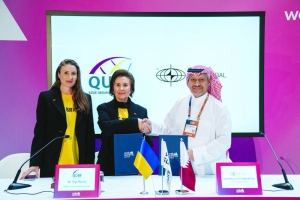Qatar investing in cutting-edge logistics tech to drive growth

Image used for representation only.
Doha: Qatar’s fast-paced economic progress in recent decades has been underpinned by its advance in some key areas including logistics, a sector in which the country has been investing and which holds the potential for continued growth in years to come.
Qatar’s continued focus on developing this sector can transform it into a regional logistics hub, a report has said. “By creating a balance between global aspirations, regional integration, and local economic development, Qatar can be poised to emerge as a comprehensive logistics hub, serving as a gateway to both global and regional markets,” said Qatar Economy Watch 2024 by PwC Middle East.
Qatar has bolstered its global logistics standing with significant investments in key areas, such as port development, border optimisation, and fostering multilateral port partnerships with global ports, such as Rotterdam, the report said. “In tandem with global endeavours, Qatar has been strengthening its local infrastructure through the expansion of Hamad Port and Hamad International Airport, along with upgrading land borders at Abu Samra to facilitate smooth and secure trade flows.”
The report said Qatar has attracted major shipping lines and airlines, further solidifying its logistical capabilities. At the same time, Qatar’s efforts to enhance regional integration through projects like a planned rail link with Saudi Arabia and a proposed bridge to Bahrain will further improve connectivity and market access across the region, the report said.
“The country’s logistical prowess was prominently demonstrated during the hosting of the FIFA World Cup in 2022. Qatar Airways, the country’s national carrier, played a pivotal role in this, bolstering global cargo movement and enhancing the nation’s logistics reputation.”
The Qatar freight and logistics market size is estimated at $9.5bn in 2024 and is expected to reach $13.49bn by 2030 (CAGR 6.01%), primarily owed to Qatar Airways and its global network, the report added.
It said local initiatives such as the expansion of free zones and tailored incentives for specific industries underscore the country’s commitment to attracting businesses and fostering economic growth. “Qatar has also been actively cultivating its e-commerce and online platforms to address the evolving needs of its local market.”
The report said that the country can attract more trade flow, enhance regional cooperation and improve local e-commerce through leveraging international and regional trade agreements; continuing investment in strong ICT infrastructure and advanced technologies; and enhancing public-private partnerships. “Embracing global initiatives, such as the World Trade Organisation (WTO) and regional frameworks, like the GCC Common Market, Qatar can streamline customs procedures, reduce trade barriers, and stimulate economic growth. Setting out strategic bilateral agreements with key trading partners can open new avenues for exports and imports, further integrating Qatar into the global trade ecosystem.”
Related
QUBF launches ‘Qatar-Ukraine Tech and Innovation Committee’
Dr Olga Revina, chairperson of QUBF, and Sheikh Mansoor bin Khalifa al-Thani, fou
Initiative to support digital innovation in Qatar launched
Assistant Undersecretary for Digital Industry Affairs at MCIT Reem Al Mansoori, and General Manager of Microsoft Qatar Lana Khalaf exchanging documents after s
MCIT, Microsoft Sign Partnership Initiative to Support Digital Innovation and…
As part of its efforts to enhance digital innovation and support the growth of startups in the country, the Ministry of Communications and Information Technolog
IIA Qatar hosts session on tech-driven transformation in internal audit
Officials pose during the seminar hosted by Institute of Internal Auditor Qatar Chapter. Doha, Qatar: The Institute of Internal Auditor Qatar Chapter r












